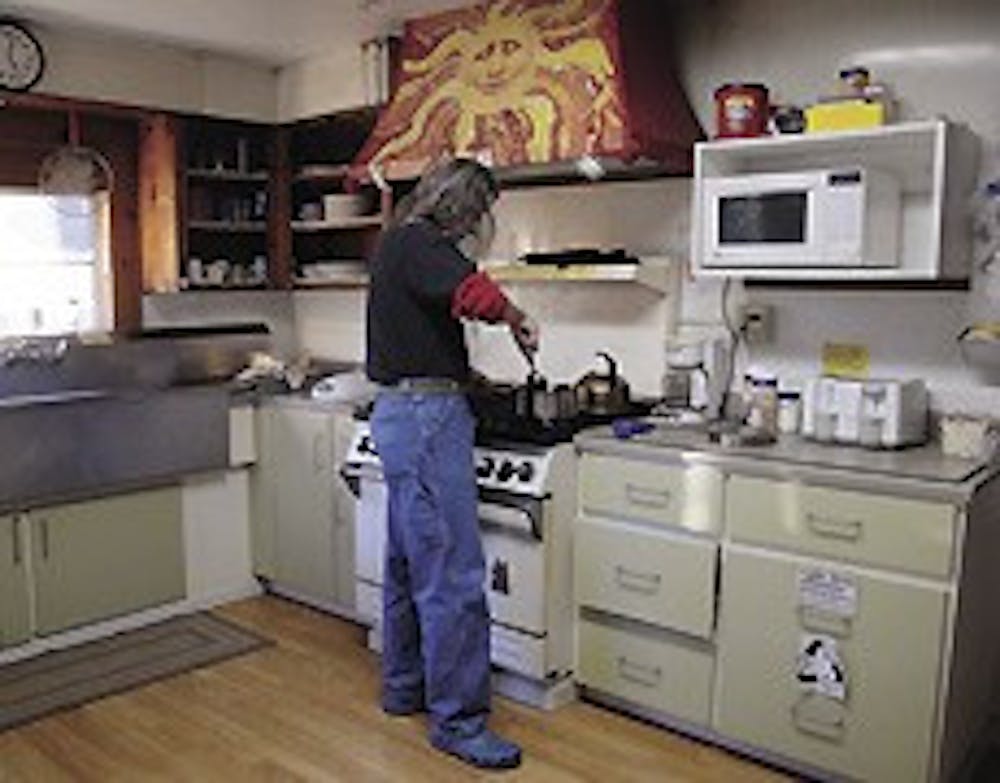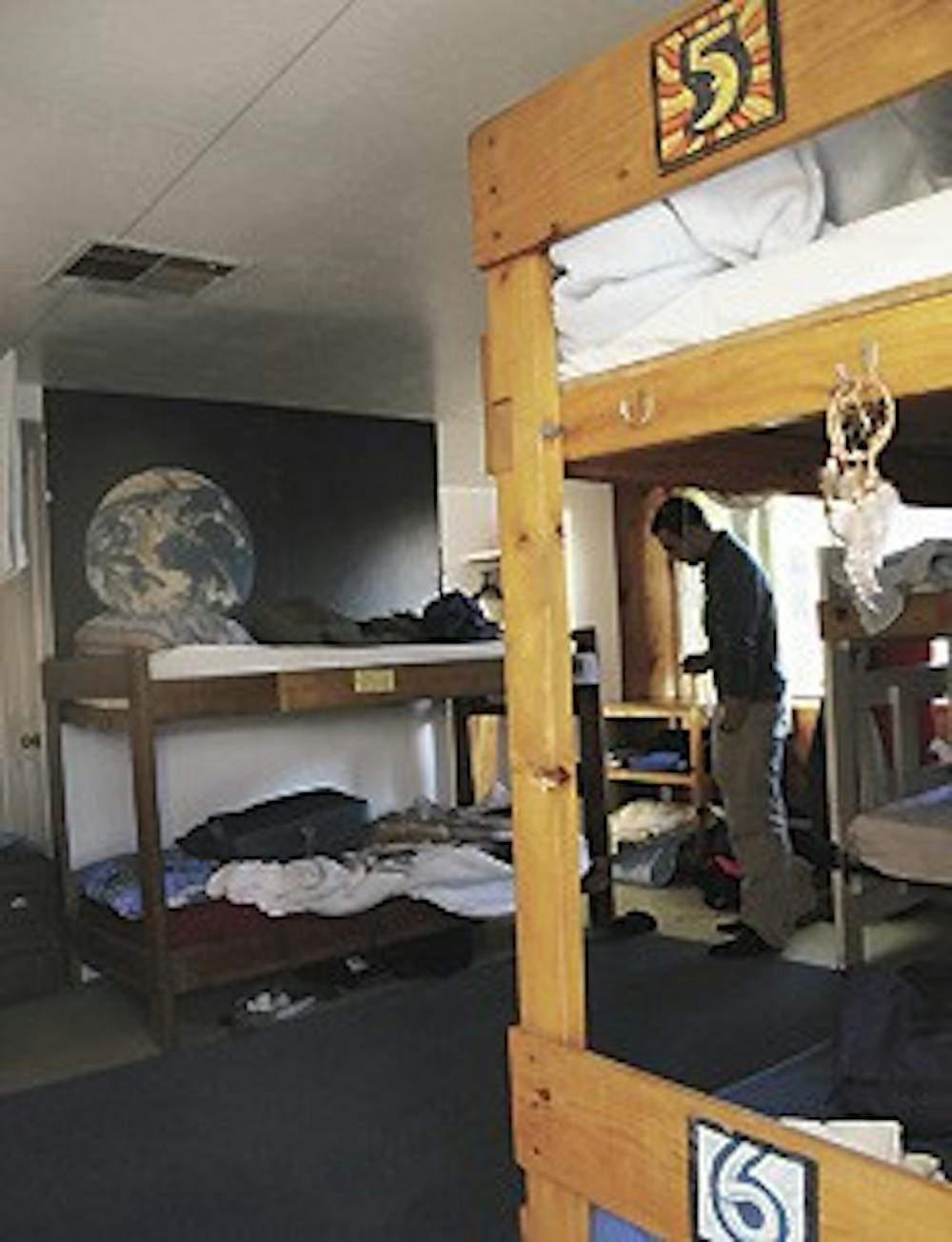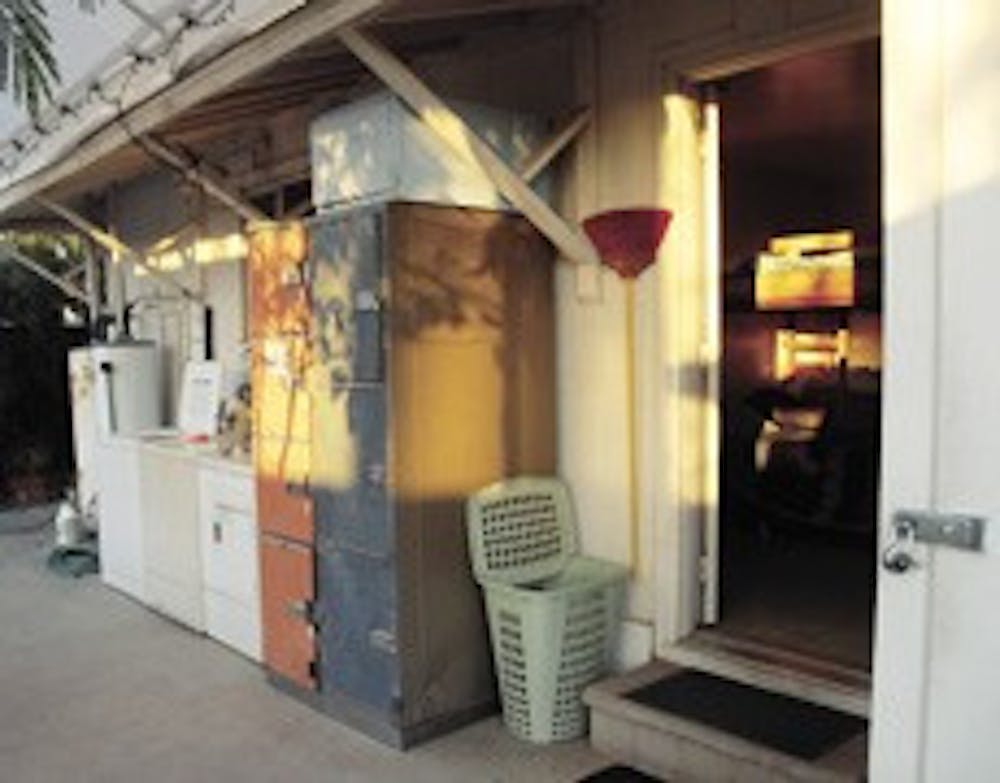Phoenix is a resort town. Each resort has finely-trimmed, cascading lawns and immaculate, white pool decks. Each is a little oasis that removes guests from the city, from the desert and from all of their surroundings. Everything is just so.
Embedded in the city is a haphazard wooden building on the 900 block of Roosevelt which isn't just so. There's no grass, but soil sprouts jungles of willowy plants. The lawn is a deep crater of dirt with a lopsided picnic table on top. A string of Christmas lights is tangled unevenly along the fence line, and the yard is cluttered with mismatched fountains and garden decorations.
The resort may be an oasis, but the house is very real. It's no competition for the resort either, and it's not trying to be. The house is Phoenix Metcalf Hostel, at 1026 N. Ninth St., and it caters to a crowd that is less polished.
"It's a different kind of traveler, a different kind of person really," says hostel operator Keith Stephens, who runs the 20-year-old hostel with James Hlavac. "We'd usually have the arty types, the hippies and young people."
A night at Metcalf Hostel costs only $20. If you purchase a hostel card — a pass recognized internationally — it only costs $18. About half of the guests are international and the rest are U.S. citizens, Hlavac says.
"We get them from 18 to 80, although most are in their 20s or 30s," Hlavac says.
He says all types of people come to the hostel.
"There were just two 19-year-olds biking across America; people coming for shows or conferences," Hlavac says. "Some people just show up on our doorstep and they don't speak a word of English."
It's a cheap place to stay, and it allows more people a chance to travel, but the environment lends itself to a different kind of function.
The first thing a visitor sees inside is a common room dominated by a gigantic round table made of chunky dark wood. It looks slightly medieval.
More times than not it's filled with people, and they're all immersed in conversation. "We were known for these big discussions," Stephens says. "Half of the experience is you are sitting next to someone from Denmark."
The effect of the table is obvious.
NAU sophomore Jon Gustafson came down to run the PF Chang's Rock and Roll Marathon. He's never stayed in a hostel before. He smiles a lot, but doesn't say much at first.
At dinnertime, however, he's animated and participates in conversation with a woman from San Francisco.
Her name is Michelle Santihano, and as soon as she arrives she starts preparing dinner and offering a meal to everyone in the house. In her presence, the guests become a giant family.
Metcalf Hostel doesn't allow locals to stay for the night, but company and conversation make it a worthwhile dinner stop. It's a think tank, a story-telling circle and a sports bar all at once.
"When you're at a hostel, the world comes to you," Stephens says.
Stephens calls Metcalf Hostel "semi-communal" and "old style." It helps Stephens and Hlavac when guests pitch in. They can't require that guests work, but the activity has the same effect as the table.
"You hand someone a broom and tell another to help and pretty soon everyone's talking," Stephens says. "Pretty soon everyone's telling a story."
The idea of everyone adding to the environment continues with the exterior. It is a collage: a passing mason left the stone benches, someone left a "liger" painted on the wall and artfully stacked rocks are from an anonymous visitor.
Beyond its role as a social center, Metcalf Hostel serves as a stepping-stone for ASU students.
Jan Buellesbach is a German biology PhD student studying at ASU. He arrives with no place to stay, but after brief directions from Stephens and Hlavac on where to go, he has a home.
"Everyone here is extremely nice and helpful," Buellesbach says. "They show us things, point us in the right direction. It's the little things."
Buellesbach already knows a few hot spots. He is also now familiar with the area. Those places may be featured in traveling guides, but he knows the community through the hostel.
"You meet new people, it's spontaneous," Stephens says. "It's the only way to travel. Otherwise you might as well watch it on TV."






